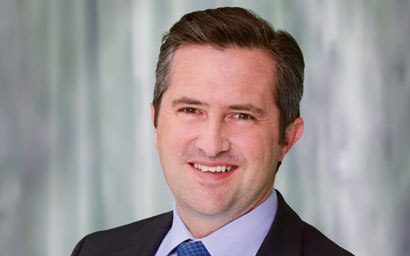Funds Europe, in association with Investec Asset Management, speaks to Rainer Schnabl, chief executive of Raiffeisen Capital Management, who thinks MiFID II will make funds more popular.
What impact do you think MiFID II will have on fund distribution in Europe?
I think the fund distributors in Europe will have to spend much more time and effort defining their target market and structuring their product range. Our main distribution channel for RCM is non-independent, so we think the new rules will raise transparency and the customers’ trust in our funds business, and that funds will become much more important investment vehicles than they have in previous years. So we welcome MiFID II because it makes it easier for investors to compare different products in the market and that can only be good for the industry.
Will there be a cost for distributors in meeting the demand for greater transparency, as well as some of the other requirements from MiFID II?
Every regulatory process leads to cost, but I think it will be a bigger problem for the smaller asset managers. For a company of our size, we can handle that and in Austria we are already operating in a highly regulated environment with very transparent products. So MiFID II will not present a big challenge to us.
Is there a danger that investors will face an ‘advice gap’ because distributors can’t make money out of certain products?
I don’t think there will be an advice gap but there will be a challenge for distributors in justifying their fees if they charge clients directly for their advice. However, I think this should lead to a greater quality in the consultation process with the clients, so I think in general it is positive for the market and the products that we offer. I think that improvement in quality should be easy for the client to see. It will be a wide range of areas that will be improved – from the time it takes to distribute the funds to the quality and quantity of supporting information that we provide.
Will electronic platforms become the dominant means of distribution in Europe?
I think electronic platforms do already have a substantial role in the funds distribution industry in Europe. For example, if you look at the number of ETF products in the market, electronic platforms are the most dominant form of distribution. In terms of RCM’s business, we are still focused on Raiffeisen Bank as our main distribution channel. It provides quality advice and is indispensable for us. I think the challenge for the electronic platforms is to provide the same quality of advice that you get with the traditional channels.
Have distributors done enough to harness the potential of big data?
I don’t think there is a distributor out there that is not using big data in some way, whether that is data from their clients or from wider sources. However, I don’t think there is a consensus yet on how that data should be used.
No one is really speaking about how they are using the data, so it is a very secretive practice. It is also something that is regulated, at least in terms of clients’ data. But I think there is still enough data out there that is available to use and that can be very useful in terms of developing products.
Does social media have a role to play in distribution?
Social media can be a useful addition for the retail business in terms of providing a forum for discussing opinions, but it will not become our main distribution channel or anything like that. We will continue to use the bank branches as our main distribution channels.
That said, I do think social media will have a more important role to play in the funds industry as we have seen in every other industry. I don’t think that it will necessarily be a source of revenue for fund distributors. Instead, I think it will be used in addition to the primary channels and to support customer service.
What has been the greatest lesson learned from the financial crisis?
What we have seen in the retail business is that customers have a much greater risk awareness and diversification has become much more important than it ever was. Before the financial crisis, they would invest in specific asset classes in specific regions but now they are much more interested in so-called mixed solutions. So they are no longer [going] to invest in say Chinese equities but much more in multi-asset products.
As a fund distributor, our emphasis has been on implementing MiFID II and that is a regulation that has emerged from the financial crisis and is an example of what has been learned from those events.
For example, the regulation is no longer focused on the product class that customers are allowed to invest in. It is more focused on the investor profile of the customer, so what we are going to do is provide multi-asset solutions for every investor profile of our customers so that there is a fund solution available for every class of investor.
I think this is an example of where complying with a regulation can actually help our business.
©2015 funds europe





